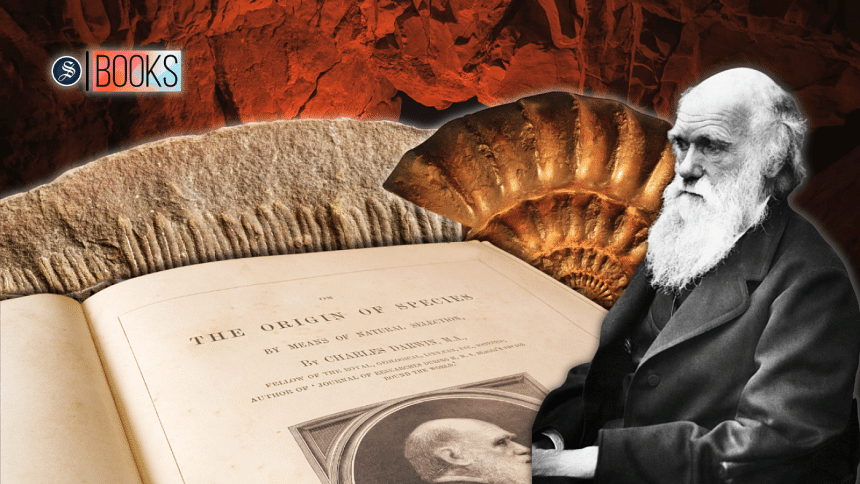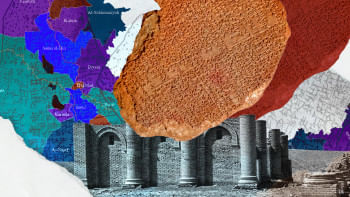How Darwin’s 'On the Origin of Species' impacted me

I first read Darwin's On the Origin of Species because I grossly misunderstood an assignment for one of my very first university courses.
I was taking a course on the history of scientific documentation and expression. While the focus of my research was Darwin, I had misinterpreted the professor's instructions. I thought I had to focus on his theories rather than Darwin himself. By the time I realised what I actually had to do, I started reading the book as I would read any novel. I went on a journey through Darwin's Beagle expedition, his observations, his framing of them, and, most importantly, how he connected them to formulate his theories. My final paper for that course turned out to be a criticism of Darwin, commenting on his conflicting use of the word "race" in his works and his overall demeanour towards different races.
I had read On the Origin of Species cover to cover for that particular course. Something that quickly got broken down was some very deep-rooted misinterpretations about Darwin and his works that had been fed to me throughout my academic life. From school to college, the topic of Darwin and evolution had always been kept quite hush-hush—from the chapters being incredibly brief in textbooks to teachers ignoring the topic altogether in the classroom. The basic idea that almost all of my peers and I had about human evolution was a very pernicious cartoon diagram that demonstrated the development of humans from apes. That image was all that would pop up in our minds whenever anyone mentioned evolution. So it wasn't difficult to believe when we were repeatedly told that it was nothing more than a humbug principle designed to cause havoc.
Thus, when I read the book myself for the first time, that too as someone who was pursuing a pre-med major, I realised—not only is that ridiculous cartoon wrong, but it hid an entire discipline of scientific revolution behind it.
No, evolution is not just "ape to man," and no, it was not intended to create chaos. This book, if anyone actually took the time to read it, can be considered a prime example of scientific documentation and publication. Darwin had included his observations of heredity and phenotypic characters in plants, insects, and mammals throughout his journeys and expeditions, one of which is famously known as his trip to the Galapagos on the HMS Beagle. Anyone who has studied biology or any of its subfields in university has had to deal with his observations of Galapagos finches and their species diversity in terms of beak formation and function. On the Origin of Species can be considered an extension of such observations, where he touches upon several species of organisms, from plants to mammals, and their conditions, from wild to domesticated. It is also incredibly important to mention that nowhere in that entire book—which is close to 500 pages long—were the words "human," "to," or "ape" used in any order.
Many of his observations and proposed theories have served as the foundation for modern biology, from evolutionary biology to genetic engineering. His key findings had to do with "survival of the fittest" and "descent with modification," to put them in layman's terms. Both of these have been reviewed, contested, and researched by scholars since their initial publication. Every year we discover so much more from so many different perspectives that challenge the experiments, theories, and findings that have been done by academics since the beginning of civilization.
What is true, however, is that Darwin's presentation of his works and observations is one of the most significant events in the history of scientific documentation. He had shown the essence of scientific research through the book's opening sentence:
"I will here attempt to give a brief but, I fear, imperfect sketch of the progress of opinion on the Origin of Species."
Now, as I sit writing this article, reminiscing about my several other crossovers with Darwin throughout my degree, ranging from phylogenetics to speciation, I look back to the very first instance where I was formally introduced to Darwin. It's safe to say that I have a great deal of gratitude owed to On the Origin of Species for a lot of scientific knowledge, the most important one being that evolution is certainly not "ape to man."
One other thing deeply influenced me: learning to look at the intricacies of nature not only through a scientific lens but also to perceive the beauty of it. I learned to look at humanity through a bigger picture and how innately beautiful it is that we currently exist in a world with such blooming diversity when our origins could not have been simpler.
Namira Ahmed is a contributor.

 For all latest news, follow The Daily Star's Google News channel.
For all latest news, follow The Daily Star's Google News channel. 











Comments